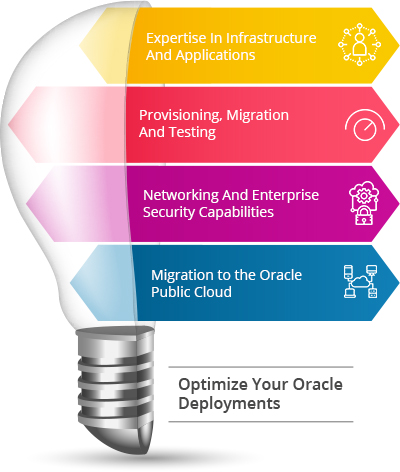- June 27, 2019
- Catagory
3 Success Factors for Oracle Applications Deployment
Whether you’re upgrading existing Oracle applications or it’s a “greenfield” rollout, there are three key things to keep in mind if you’re going to get the most from your applications deployment.

The sheer number of Oracle applications—as well as hardware requirements—can be overwhelming. While there’s value in sticking with one vendor to run your entire business, it’s critical that you’ve made a compelling business case for your applications deployment. You must also have the resources in place to not only implement them but also support them throughout their lifecycle.
What business problems are your Oracle applications solving?
If you’re deploying Oracle applications for the first time, you should have a strong understanding as to why you’ve chosen each one.
Before you’ve even begun your applications deployment, you should identify the problems you are looking to solve and your business objectives to be sure you’ve chosen the best Oracle applications for daily operations. For example, Oracle application such as Business Intelligence, Supply Chain Management and E-Business Suite should be considered by any organization looking to gain greater visibility and improve profitability, as they can help you make better decisions through analytics, optimize your workflows and improve employee productivity.
All the above need optimum data management, so you might want to look at Oracle Middleware so that you can provide your Oracle applications with a single source of data to truly leverage your business applications to make smart decisions.
Picking the right hardware for your applications deployment
Enterprise software applications such as those from Oracle are no different than one running on a PC or a smartphone—they need the right hardware to deliver value and productivity gains, whether it’s a software update or a greenfield applications deployment.
In some cases, you might want to take advantage of Oracle hardware for your Oracle applications, such as Oracle Virtual Machine, which will help reduce your overall compute costs. A more data intensive organization should consider an Oracle engineered system such as the Oracle Database Appliance, or Oracle Exadata, which provides even more power with less maintenance.
There are also non-Oracle options too, such as IBM Power and HPE SuperDome Flex. The latter is an x86 option that can help reduce your licensing costs without breaking the bank so you can maximize the return-on-investment from your Oracle applications.
Power your Oracle applications with the right people
While Oracle applications can improve the productivity of your business users, some aspects of your applications deployment are going to require strong skill sets, particularly in the database management era.
Database administrators (DBAs) are in high demand, and small and medium-sized organizations must compete with large enterprises to attract and retain top talent. Although you should never cut corners in this area, there are affordable options to make sure you have the right people to manage the data that helps derive business value from Oracle applications. You can take advantage of shared DBA services from a managed IT service provider to augment Oracle DBA Services with additional resources to fill any gaps. You can access a virtual DBA on-demand, either on a temporary or long-term basis based on the ebbs and flow of your business.
Whether you’re doing incremental updates to your existing Oracle applications to get each one to the latest version, or a complete greenfield applications deployment, it’s critical that you understand what your business objectives are, as well as the hardware and people necessary to support your initial rollout and ongoing operations.
Arun Prakash is executive vice president of Supra ITS.




 Latest Blogs
Latest Blogs FAQ
FAQ